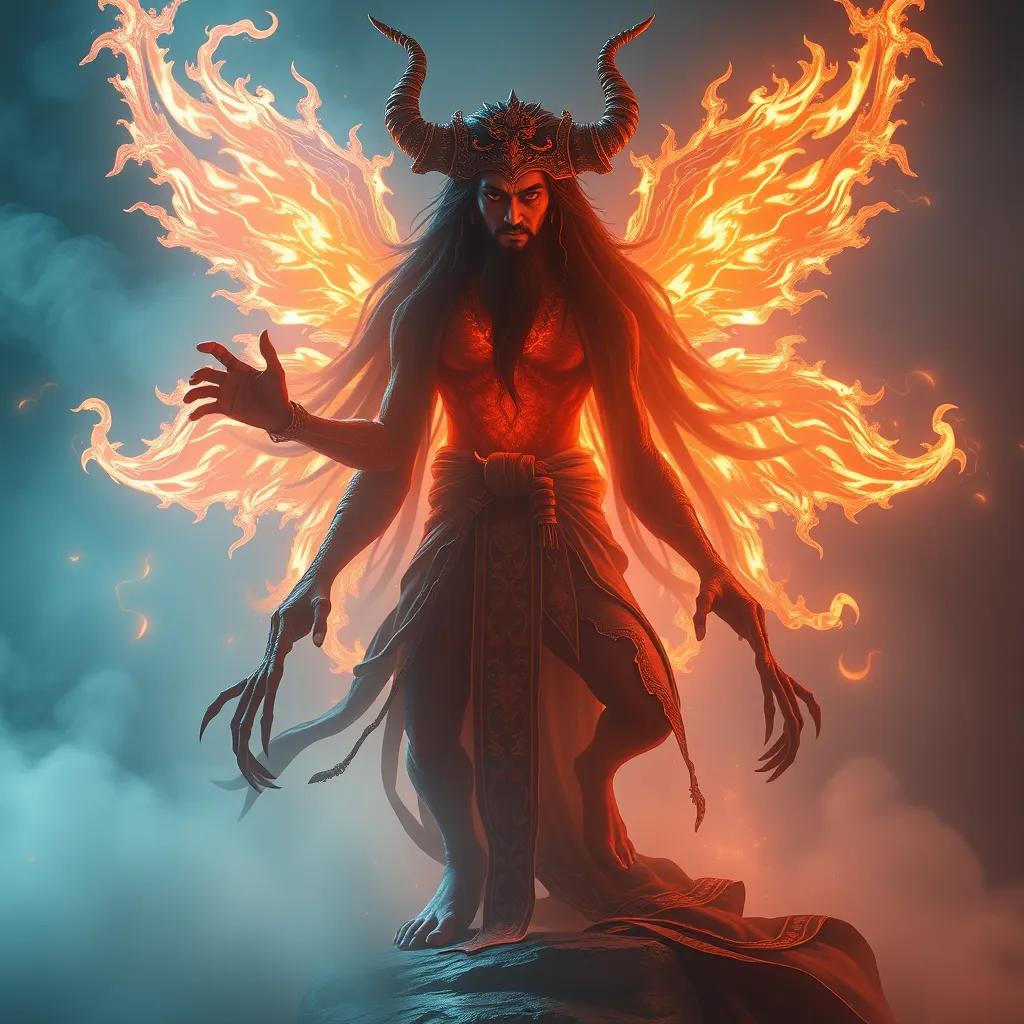The Divine Lineage: Tracing Pegasus’ Ancestry from the Titans to the Gods
I. Introduction
Pegasus, the winged horse of Greek mythology, has captured the imaginations of countless generations. His majestic form and incredible abilities symbolize not only the beauty of mythical creatures but also the profound connections between gods, mortals, and the cosmos. Understanding Pegasus’ ancestry is crucial for appreciating the intricate tapestry of Greek mythology, where the lineage of characters often dictates their roles and significance.
This article aims to delve into the origins of Pegasus, tracing his lineage from the Titans through to the Olympian gods, while exploring the symbolism and legacy he has left in both ancient and modern culture.
II. The Origins of Pegasus: A Titan’s Tale
The genesis of Pegasus is entwined with one of the most tragic stories in Greek mythology: the tale of Medusa. Once a beautiful maiden, Medusa was transformed into a Gorgon—a monster with snakes for hair—by the goddess Athena, due to a curse that resulted from an unfortunate encounter with Poseidon.
In an extraordinary twist of fate, Pegasus was born from the blood of Medusa when she was slain by the hero Perseus. As Perseus beheaded her, the blood that spilled forth gave rise not only to Pegasus but also to Chrysaor, a giant wielding a golden sword. This miraculous birth underscores the connection between beauty, monstrosity, and divine intervention in Greek lore.
The Titans, ancient deities who predate the Olympian gods, play a significant role in the backdrop of Pegasus’ story. They represent primordial forces and elemental powers that shaped the world and its inhabitants.
III. The Role of the Titans in Pegasus’ Ancestry
Several key Titan figures are associated with Pegasus through his lineage and the broader narrative of Greek mythology:
- Oceanus – The Titan of the ocean, symbolizing the vast and untamed nature of the world.
- Hyperion – The Titan of light, often linked to the sun and celestial bodies.
- Coeus – The Titan of intellect, representing the wisdom that Pegasus embodies.
The connection between Titans and mythical creatures is profound. The Titans, as the ancestors of many gods and heroes, set the stage for the emergence of creatures like Pegasus. Their stories often intertwine with those of the gods, influencing the characteristics and destinies of their descendants.
Titan mythology, with its themes of power struggles and cosmic order, serves as a foundational backdrop for understanding Pegasus’ narrative. The transition from the chaotic rule of the Titans to the structured governance of the Olympian gods mirrors the transformation of Medusa’s tragic story into Pegasus’ majestic flight.
IV. Pegasus and the Olympian Gods
Pegasus’ relationship with the Olympian gods is integral to his character and narrative. His most notable connection is with Zeus, the king of the gods. According to mythology, after Pegasus was born, he became a favored creature of Zeus, often depicted as carrying his thunderbolts.
Poseidon, the god of the sea and horses, is another crucial figure in Pegasus’ story. The connection between Poseidon and horses is significant, as he is often credited with creating the first horse. This link emphasizes the divine nature of Pegasus as a creature born from the combination of divine forces and mortal actions.
The gods shaped Pegasus’ destiny, guiding his journey from the earth to the heavens. His transformation from a creature of chaos to a symbol of inspiration illustrates the influence of divine will in Greek mythology.
V. The Symbolism of Pegasus in Greek Mythology
Pegasus carries rich symbolism within Greek mythology:
- Inspiration and Wisdom – Pegasus is often associated with the Muses, the goddesses of inspiration for literature, science, and the arts.
- Freedom – His ability to soar through the skies represents the ultimate freedom and the human desire to transcend earthly limitations.
- Poetic Inspiration – The image of Pegasus is frequently linked to the creative process, embodying the spark of artistic endeavor.
Throughout history, Pegasus has held cultural significance, representing not just physical beauty but also the lofty ideals of wisdom and inspiration. His image has been a source of fascination in various artistic expressions, from ancient pottery to modern literature.
VI. The Legacy of Pegasus in Ancient Literature
Pegasus has been referenced in numerous ancient texts, notably in the works of Homer. In the “Iliad,” his connection to the hero Bellerophon is a pivotal part of the narrative, showcasing his role as a noble steed in heroic exploits.
In addition to Homer, Pegasus appears in later myths and stories, evolving into a figure of great importance in various contexts:
- In the “Argonautica,” he is linked to the adventures of Jason and the Argonauts.
- The tale of Bellerophon, who rides Pegasus to defeat the Chimera, further solidifies his heroic status.
The character of Pegasus has evolved over time, reflecting the changing values and beliefs of the societies that tell his story. His legacy continues to inspire countless adaptations and interpretations in literature and the arts.
VII. Pegasus in Modern Culture
Today, Pegasus remains a prominent figure in art, literature, and film. His image has been utilized to convey themes of inspiration and creativity across various mediums:
- Art – Pegasus has been depicted in paintings, sculptures, and illustrations, often symbolizing creativity and imagination.
- Literature – Contemporary writers continue to draw upon the myth of Pegasus, reimagining his character in new contexts.
- Film – Pegasus appears in movies and animations, captivating audiences with his enchanting presence.
The relevance of Pegasus in contemporary society underscores his status as a timeless symbol of aspiration and creativity, resonating with individuals who seek to transcend their limitations and achieve greatness.
VIII. Conclusion
Pegasus’ divine lineage—from his origins with the Titans to his relationships with the Olympian gods—illustrates the intricate connections within Greek mythology. His ancestry not only shapes his character but also highlights the broader themes of beauty, tragedy, and inspiration that permeate these ancient stories.
The lasting impact of Pegasus on mythology and culture speaks to the enduring power of storytelling. As a symbol of creativity and aspiration, Pegasus will continue to inspire future generations, reminding us of the boundless potential that lies within the human spirit.




